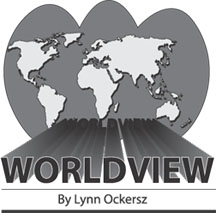|
observer |
|
|
|
|
|
OTHER LINKS |

|

|

|
Reviving the democratic process in Bangladesh
However, what is likely to trouble them equally is the fact that the whip is being cracked on the corrupt by an interim, military-backed administration and not by a duly, democratically-elected government. This is the poser which is certain to prove troubling for most Bangladesh watchers. Bangladesh is being through yet another turbulent spell in its politics with there being no immediate prospect of the democratic process being put in place although the current administration's mandate is to pave the way for the conduct of fresh parliamentary elections. However, parliamentary polls have been repeatedly postponed on account of mounting civil unrest on Dhaka's streets and opposition demands that the polls be held by neutral, impartial administrators with no links with the former BNP government. Meanwhile, the interim administration in an effort to prove that it means business when it says that it is for "clean" elections, is swooping unrelentingly on those in the former government facing corruption allegations, including a number of Ministers of state. So, what's amiss here, unsuspecting sections are likely to query. Shouldn't the corrupt be brought to book and put behind bars? Certainly, it should be so but such anti-corruption crackdowns should be spearheaded by democratically-elected governments and not by military-backed, interim administrations which do not really enjoy a popular mandate. In other words, anti-corruption drives should grow organically out of the democratic process, as part of the process of democratic governance, and should not be clamped, in top-down, authoritarian fashion by interim governing bodies which enjoy wide, executive power but are not accountable to the people to the desired degree. For, the latter processes smack too much of the totalitarian approach to governance, where authoritarian rulers attempt to win public approval in a hurry by resorting to populist measures which are likely to please many - in this instance, swooping mercilessly on those seen as corrupt. In Bangladesh, which has seen spells of military rule since its establishment in 1971, such developments could prove extremely disturbing. With the military continuing to wield considerable influence in the country's affairs, the danger is that authoritarian tendencies may reassert themselves in Bangladesh politics once again; given this bleak backdrop. Ideally, the democratic process should be revived and a popularly-elected government put in place which would be fully accountable to the people. By making these observations one does not intend to suggest that Bangladesh is sliding into authoritarian rule once again but the point that is intended to be made is that in a state where the military has played a considerable role in politics, one cannot afford to delay putting the democratic process back on track. Perhaps, Bangladesh's two main political parties, the Bangladesh Nationalist Party and the Awami League should work swiftly and consensually on this issue. They need to remember that in the remaining authoritarian states of South Asia, the military has always made civil strife an excuse to intervene in politics and subvert the democratic process. Accountable, democratic governance is the crying need for Bangladesh now, when it is making tremendous gains on the socio-economic front. When it comes to the Human Quality of Life index, Bangladesh has been making vast strides over the years and today figures in South Asia as a successful welfare state. These gains would come to nought if the democratic process is stymied and administrations which are relatively insensitive to the needs of the public wield power in Bangladesh. As for corruption, the Bangladesh case proves that democratic governments should take it on themselves to end the blight. If not they are likely to see authoritarian forces taking hold of politics, under the excuse of ending unchecked abuses and excesses by democratically-installed administrations. |
 Bribery and corruption is a number one taint of a number of
democratic societies in this region and there is bound to be wide
applause from among our civic-conscious publics for the Bangladeshi
authorities' current, seemingly unrelenting crackdown on corruption in
high places.
Bribery and corruption is a number one taint of a number of
democratic societies in this region and there is bound to be wide
applause from among our civic-conscious publics for the Bangladeshi
authorities' current, seemingly unrelenting crackdown on corruption in
high places. 






